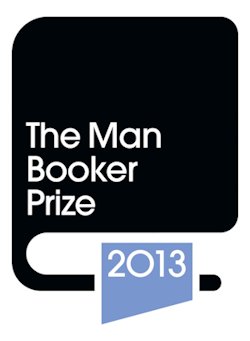Here in the UK, there’s no more prestigious prize for literature than the Man Booker, and to no-one’s surprise, British genre fiction fans have made an annual habit of bashing this very visible award for its seemingly superficial dismissal of the innumerable novels we believe to be deserving of such recognition.
I’d like to say rightly so, but if the truth be told… I don’t know. Having only read one of the last batch of shortlisted novels, I don’t feel particularly qualified to pitch in with my personal opinion. I mean, speculative fiction should certainly get a look in, and sometimes it does—Communion Town and The Teleportation Accident were both longlisted in 2012—but is it tenable to suggest a genre novel need be nominated every year? I honestly don’t think so, no.
In any event, if I’m reading the signs right, it looks like the line of criticism discussed above has hit home with this year’s panel of literary critics. In this special standalone edition of the British Genre Fiction Focus—Tor.com’s weekly column dedicated to news and new releases from the United Kingdom’s thriving speculative fiction industry, in case you hadn’t heard—we’re going to talk about an article that The Guardian recently ran, in which one of the judges of the impending prize, namely Stuart Kelly, used the words of the overall award chair as a platform to assert that the so-called “genre wars” may be over—or at the very least ending.
It’s worth noting that Robert Macfarlane was not writing about the Booker, or even the conflict between literary and genre fiction that Kelly insists exists; rather, he was introducing Gollancz’s recent reissue of Climbers by M. John Harrison, which I reviewed right here quite recently.

Long story short, Climbers is an extraordinary novel, but not of the genre at all. It is “seen as an outlier in Harrison’s oeuvre, a rare real-world expedition,” a brilliant book by an author with a certain predilection for science fiction, thus Macfarlane spends quite some time unpacking his perspective on the speculative.
Here’s the whole quote Kelly references in his article:
Let me try to express a little of the amazement I feel when standing in front of the work of Harrison, who is best known as one of the restless fathers of modern SF but who is to my mind among the most brilliant novelists writing today, and with regard to whom the question of genre is a flimsy irrelevance. To read Light, Nova Swing, Empty Space or Climbers is to encounter fiction doing what fiction must: carrying out the kinds of thinking and expression that would be possible in no other form.
Very well said, yes?
So is genre, as Macfarlane moots, “a flimsy irrelevance”? Kelly’s perspective begins with a negative:
Well, not to publishers and booksellers, who seem the section of the literary world most wedded to genre distinctions: you’ll still find China Miéville and Lauren Beukes in fantasy, Ken MacLeod and Iain M Banks in sci-fi, Sophie Hannah and Ruth Rendell in crime, Brian Evenson and Kathe Koja in horror. We critics can praise them to the high heavens, but it doesn’t change where they end up in a bookshop. It does seem odd that historical fiction isn’t segregated in the same way (and “literary” historicals—yes, Wolf Hall et al—sit next to “genre” historicals such as those by Robyn Young or Simon Scarrow).
There are those who argue that “literary” is just another genre. This doesn’t seem to me to be a particularly useful line of enquiry, as the “literary” covers a plethora of styles and registers. Will Self, or Salman Rushdie, or Nicola Barker have more in common with non-realist genre writers (such as Christopher Priest or Lydia Millet) than they do with Ian McEwan or Howard Jacobson or Rose Tremain.
But although they have a major part to play in the positioning of various forms of fiction, publishers and booksellers aren’t the only Powers That Be these days. Needless to say, readers have a large part to play, whilst critics, at least according to Kelly, are now much more accepting of genre novels than they have been historically:
I don’t know of a single serious critic nowadays who would dismiss genre writing solely on the basis that it is genre writing. To that extent, the “genre wars” are over. Could more be done? Of course: book festivals, for example, still tend to pair up genre writers; publishers spend more time marketing already successful genre books than other novels—the crime writer Denise Mina told me the Man Booker should go to a “literary” writer as they need all the help they can get. In the world of the safe “classics,” it’s unexceptional to see Zane Grey, Shirley Jackson, HP Lovecraft and John Le Carré all marketed as “modern classics” alongside Woolf, Joyce, Musil and Proust. And, given that the Nobel Prize Committee is yet to recognise a writer such as Thomas Pynchon (who seems to revel in every genre), I won’t be holding my breath for Stephen King to get the call from Oslo.
Nor will I. But should we be?
I guess your answer to that question depends upon your opinion of King. I tend to think he’s pretty brilliant. Probably not one of the finest writers of our time in technical terms, yet his work has moved me more often and in more ways than the oeuvre of most modern authors.
That said, there are those who are outright repelled by his prose—and that’s the thing, isn’t it? Perspective is everything. Beauty is, of course, in the eye of the beholder. And the Booker Prize has historically been interested in celebrating a very specific vision of literature; an intellectual aesthetic that King, for instance, simply doesn’t trade in.
But there are certain genre authors who indubitably do—consider Christopher Priest and Kim Stanley Robinson and, to come full circle, M. John Harrison, whose latest, Empty Space, I can see making this year’s longlist at least—and their novels absolutely should be considered alongside the literary fiction that has dominated the Booker Prize in previous years.
That they haven’t been in the past, or at least not seriously, is simple discrimination. That they will be in the future—assuming Kelly and Macfarlane make good on their assurances—is basically only fair.
This, then, mightn’t mean a giant leap for the genre, but it is unquestionably a small step in the right direction. The very thought that the third volume of a space opera series which comes complete with nanomachines and alien artefacts could be competing against Bring Up the Bodies for this year’s Man Booker Prize is as sure a sign as any I’ve seen that the genre wars may indeed be ending.
But as to whether they’re won and done? I wonder….
Niall Alexander is an erstwhile English teacher who reads and writes about all things weird and wonderful for The Speculative Scotsman, Strange Horizons, and Tor.com, where he contributes a weekly column concerned with news and new releases in the UK called the British Genre Fiction Focus, and co-curates the Short Fiction Spotlight. On occasion he’s been seen to tweet, twoo.










